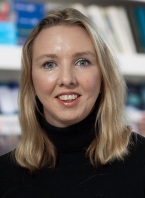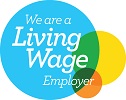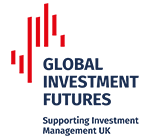
Q3 market insights and Q4 look ahead
We have reached the third quarter of 2020 and September’s inflow of £1.6 billion continues a six month run of positive net retail sales of £16.3 billion since March 2020’s record outflow. Total net retail sales for the year to date are £14.0 billion and sales for Q3 are a healthy £5.4 billion. Active funds also remained in inflow at £336 million in September whilst tracker fund flows were £1.2 billion, and consistent with the scale of inflows to trackers observed across Q3.
FUM in September reached £1.322 trillion, edging slightly higher than December 2019 (£1.319 trillion) having fallen by 14% between December 2019 and March 2020.
The lion’s share of flows in the third quarter have been to fixed income funds at £4.6 billion and in September inflows to the Global Bonds sector were a record £936.7 million. The reversal of the March outflows remains a factor in prolonging inflows to the fixed income sectors but investors may feel better disposed towards globally diversified bond funds, and the relative safety of bonds, with more volatile equity markets in prospect. For retail investors looking for income, fixed income provides the most accessible source given the ongoing property fund suspensions and weak dividend outlook.
Responsible investment
Responsible investment (RI) funds attract investors that are not purely driven by financial objectives and the outlook for retail inflows to these funds is more positive for Q4 if the pattern of sales in 2020 remains constant. UK investors placed £7.1 billion into responsible investment funds in the first three quarters of 2020 compared with £14.0 billion in overall net retail sales – this is up from £1.9 billion in the first three quarters of 2019. Whilst gross sales to RI funds are 5% of total gross sales for the year to date, net sales are just over 50% showing that this is sticky money. Responsible investment funds allow savers to put their money to work to support positive change globally: this is not a decision bound by the vagaries of the market.
Looking ahead
The pattern of sales in September remains consistent with previous months but as we look ahead to the end of the year, we are now operating against a backdrop of heightened economic and political uncertainty. The second round of national lockdowns in Europe comes as the latest UK PMI data show that the rebound in business activity was already slowing in October before the national lockdown, with the weakest rise in output since June. The US election result will also cast its long shadow over global markets and whilst Joe Biden has been confirmed as US President, the close race highlights a deeply divided America.
However, Asian markets have rallied very strongly on the back of Biden’s victory and the potential for a more significant stimulus package under Biden could boost equity markets. It is difficult to predict how sales will fare in Q4 or if investors will react to any significant market events. Our expectation is that investors will be cautious and gross sales and redemptions activity may be more subdued.
There is also some speculation that the Bank of England will decide to set negative interest rates. A negative rate would act to counter slowing economic growth by making it more attractive for banks to lend and less attractive for savers to build up cash deposits, which could also stimulate further spending and/or long-term fund investment. The BoE data on household deposits show that for the year to date, UK households have deposited £97.9 billion into cash accounts. Just over a quarter of this total (£27.0bn) was deposited in May as saving rocketed during the first lockdown. Household deposits over the same period in 2019 were two fifths of the 2020 total. Some of this money is undoubtedly UK households building up cash reserves as unemployment rises and families save to provide for future basic needs. But savers that have built up deposits because they are spending less as a result of lockdown, travel restrictions or working from home would be better served investing, particularly if we move to a negative interest rate.






